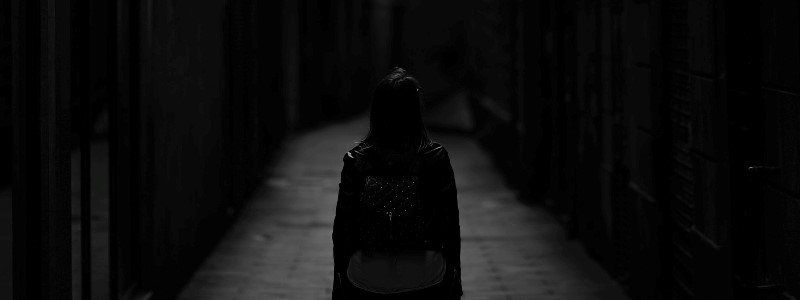As the holiday season descends upon us like a glittering, tinsel-laden avalanche, many find themselves navigating the tricky or sometimes treacherous emotional landscape of family gatherings. Fear not, dear reader, for psychoanalytic psychotherapy could offer a guiding star, a beacon of hope to lead you through the holiday chaos to that peaceful Nativity scene, stable and all.
On the first day of Christmas: recognising your inner child
Imagine the family Christmas as a complex psychological drama where every interaction is laden with unconscious meaning. Your mother’s passive-aggressive comment about your table decorations, cooking, Christmas jumper choice – a manifestation of unresolved childhood dynamics? Your father’s awkward attempt at connection and endless ‘dad jokes’ – a deep-seated need for validation?
Psychoanalytic therapy teaches us to unwrap these emotional presents, glimpsing beyond the shiny exterior to try to read or understand the deeper psychological mechanisms at play. Each family member arrives with a lifetime of unprocessed experiences, creating a psychological minefield more intricate than the most complicated Christmas light display.
On the second day of Christmas: projection and family dynamics
Watch as Uncle Bob projects his professional disappointments onto you, criticism masquerading as concern. Your sister’s seemingly innocent comments carry the weight of childhood rivalries. Psychoanalysis aims to help you recognize these projections, transforming you from a passive recipient of family narratives to an active interpreter of emotional scripts.
On the third day of Christmas: the unconscious holiday script
Your family gathering is not just a meal; it’s a carefully choreographed psychological performance. Each member plays a role established decades ago – the peacemaker, the black sheep, the golden child, the wise men, the angels and the shepherds. Psychoanalytic therapy can provide script analysis, helping you identify and grasp the inference in these deeply ingrained patterns.
On the fourth day of Christmas: transference and family interactions
Every interaction becomes a window into your unconscious processes. That tension with your mother… It’s rarely about the overcooked turkey. Is it perhaps related to those early attachment experiences, unresolved conflicts, and deep-seated emotional patterns that have been simmering in the realm of the unconscious since childhood, with a hint of the aroma of boiled sprouts?
On the fifth day of Christmas: breaking defensive mechanisms
Family gatherings trigger our most sophisticated psychological defence mechanisms. Humour becomes a shield, sarcasm a weapon, silence a fortress. Psychoanalysis can help you to recognise these hidden defences, encouraging an authentic emotional engagement beneath the festive veneer.
On the sixth day of Christmas: the unconscious holiday narrative
Your family’s holiday story is more complex than any Netflix drama. Unspoken traumas, generational patterns, and collective family myths create a narrative far more compelling than any Christmas special. Psychoanalytic therapy offers you the opportunity to re-write the director’s cut, helping you illuminate the deeper subtext of the storyline.
On the seventh day of Christmas: emotional archaeology
Each family interaction is an archaeological dig into your psychological landscape. Old wounds, repressed memories, unacknowledged traumas – they all resurface during the holidays. Psychoanalysis can provide the tools to gently excavate these emotional artefacts with as much care and compassion as you employ to slice and serve that extra special Christmas pavlova.
On the eighth day of Christmas: navigating emotional boundaries
Learn to establish psychological boundaries more robust than a gingerbread iced fortress. Psychoanalytic therapy empowers you to differentiate between your emotions and those projected onto you, creating a healthy emotional ecosystem amidst family chaos. A breadcrumb trail through the forest of the unconscious.
On the ninth day of Christmas: understanding repetition compulsion
Why do we find ourselves repeating the same family dynamics year after year? Psychoanalysis can reveal the unconscious drives which compel us to recreate familiar emotional landscapes, even when they’re painful and seemingly unavoidable. An Alka-Seltzer for those undigested issues.
On the tenth day of Christmas: the gift of self-awareness
Your greatest present this Christmas is self-understanding. Addressing and processing the unconscious elements we bury like a tangerine in the toe of our Christmas stocking, Psychoanalytic therapy can transform family gatherings from potential emotional minefields into opportunities for growth, insight and hopefully a family game of Uno that doesn’t descend into World War III.
On the eleventh day of Christmas: integrating the shadow
Embrace the parts of yourself and your family history you’d prefer to keep wrapped up. True healing comes from acknowledgment, not denial. Set a place at the table for all the ghosts of your Christmas’ past.
On the twelfth day of Christmas: transformation
As the holiday dust settles, you may emerge not just surviving, but psychologically transformed. Armed with insights from the psychoanalytic journey, you’ve navigated the complex emotional terrain of family dynamics, Prancer and Dancer would be most impressed!
Remember, dear reader: this Christmas, your most valuable gift is the journey of self-discovery.
Shiraz El Showk is a Training Member of the Association for Group and Individual Psychotherapy (AGIP) and a registered Training member of the UKCP, She is experienced in Psychodynamic counselling and Psychoanalytic Psychotherapy work with individuals, on both long and short term basis. Shiraz works from our Brighton and Hove practice, Lewes practice and online.
Further reading by Shiraz El Showk –
Parents – the ghosts and angels of our past
Is an AI therapist as good as a human one?
What is the unconscious? (part one)
Why is three the magic number? Third spaces, secure bases and creative living (part two)


